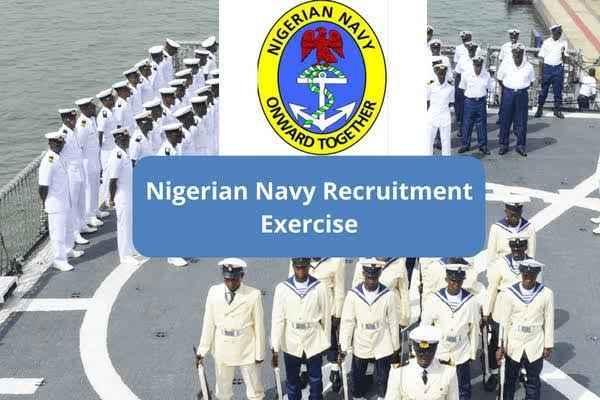The 6 Armed Forces In Nigeria And Their Roles

Nigeria, often regarded as the "Giant of Africa," boasts a well-structured and diverse armed forces system designed to protect its sovereignty, maintain peace, and support civil authorities in times of need. Here’s a detailed look at the full list of armed forces in Nigeria and their respective roles.
1. Nigerian Army
Role and Responsibilities: The Nigerian Army is the largest component of the Nigerian Armed Forces. It is primarily responsible for land-based military operations. The Army’s roles include:
-
Defending the Nation’s Borders: The Army is tasked with defending Nigeria’s territorial integrity against external aggression.
-
Internal Security: It plays a crucial role in maintaining internal security and peace, including counter-insurgency operations against groups like Boko Haram.
-
Disaster Response: Assisting civil authorities during natural disasters, emergencies, and humanitarian crises.
-
Peacekeeping Missions: Contributing troops to international peacekeeping operations under the auspices of the United Nations and the African Union.
2. Nigerian Navy
Role and Responsibilities: The Nigerian Navy is responsible for naval operations and ensuring the safety and security of Nigeria’s maritime environment. Its roles include:
-
Maritime Defense: Protecting Nigeria’s maritime borders against external threats.
-
Anti-Piracy Operations: Combating piracy and securing Nigeria’s coastal waters, especially in the Gulf of Guinea.
-
Search and Rescue: Conducting search and rescue missions to aid vessels and personnel in distress at sea.
-
Oil and Gas Infrastructure Protection: Safeguarding Nigeria’s vital oil and gas infrastructure, which is predominantly offshore.
- Maritime Security Operations: Engaging in maritime security operations to ensure safe and secure shipping lanes.
3. Nigerian Air Force
Role and Responsibilities: The Nigerian Air Force is tasked with air-based military operations, providing air support to the Army and Navy. Its roles include:
-
Aerial Defense: Protecting Nigeria’s airspace from external threats and ensuring air superiority.
-
Close Air Support: Providing close air support to ground troops during military operations.
-
Air Surveillance and Reconnaissance: Conducting aerial surveillance and reconnaissance missions to gather intelligence.
-
Humanitarian Assistance: Delivering humanitarian aid and conducting medical evacuation during emergencies.
-
Training and Development: Training pilots and aircrew, and developing indigenous aerospace capabilities.
4. Nigerian Police Force
Role and Responsibilities: Although not traditionally considered a part of the military, the Nigerian Police Force plays a critical role in maintaining internal security. Its roles include:
-
Law Enforcement: Enforcing laws and maintaining public order within the country.
-
Crime Prevention: Preventing and investigating criminal activities.
-
Public Safety: Ensuring the safety and security of citizens through various public safety initiatives.
-
Community Policing: Engaging with communities to foster trust and cooperation in maintaining law and order.
5. Nigerian Security and Civil Defence Corps (NSCDC)
Role and Responsibilities: The NSCDC is a paramilitary organization established to provide complementary security services. Its roles include:
-
Protection of Critical Infrastructure: Safeguarding national critical infrastructure and assets.
-
Disaster Management: Assisting in disaster management and emergency response.
-
Public Safety: Ensuring public safety and collaborating with other security agencies.
-
Anti-Vandalism Operations: Combating vandalism and illegal bunkering activities.
6. Department of State Services (DSS)
Role and Responsibilities: The DSS, also known as the State Security Service (SSS), is Nigeria’s primary domestic intelligence agency. Its roles include:
-
Counterintelligence: Protecting the country against espionage, sabotage, and other security threats.
-
Counterterrorism: Conducting counterterrorism operations and gathering intelligence on terrorist activities.
-
VIP Protection: Providing security for high-ranking government officials and visiting dignitaries.
-
National Security: Ensuring the security and stability of the nation through various intelligence and security operations.
Conclusion
The armed forces of Nigeria play a pivotal role in safeguarding the nation’s sovereignty, maintaining internal security, and contributing to international peacekeeping efforts. From the land-based operations of the Nigerian Army to the maritime defense by the Nigerian Navy, and the aerial supremacy of the Nigerian Air Force, each branch plays a crucial role in the defense and security architecture of Nigeria. Additionally, paramilitary organizations like the Nigerian Police Force, NSCDC, and DSS further bolster the country’s security apparatus, ensuring a comprehensive approach to national security and public safety.





